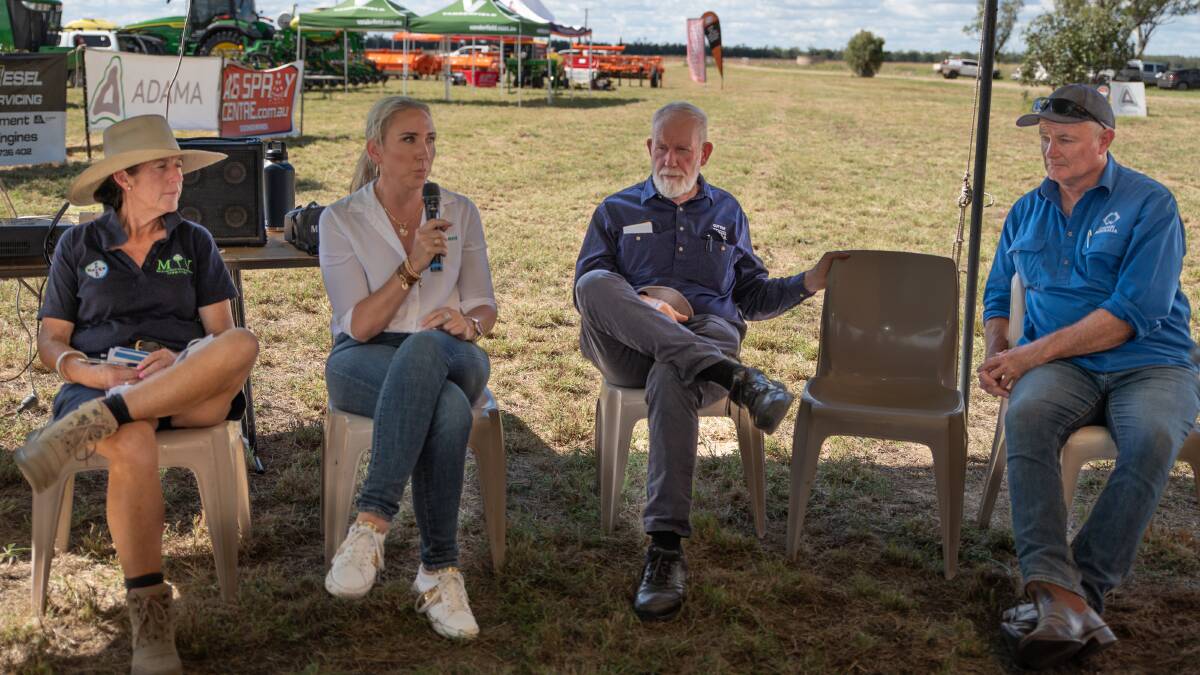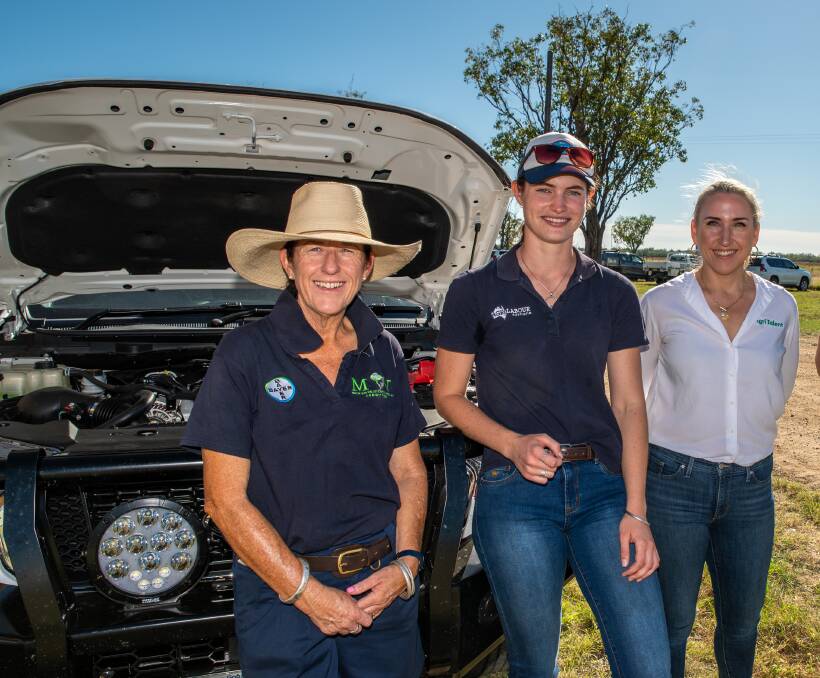
Employers need to change their thinking on workers from different backgrounds, young people, social media, automation, and accommodation if they want to attract quality staff amid the labour shortage.
That was the message from the labour discussion panel at the recent MacIntyre Valley Cotton field day, which included two labour hire experts, the CEO of Cotton Australia and an agricultural machinery manufacturer.
Agri Labour Australia regional manager Michelle Sleeth, who works in the casual job market, said the biggest issue facing the industry was the loss of backpackers due to COVID restrictions and the subsequent difficulty in trying to replace them.
According to Ms Sleeth, there were 200,000 backpackers in Australia pre-COVID, and now there were 22,000, with 2000 in Queensland.
Thinking outside the box
She said businesses needed to look at other ways of recruitment, including considering more Australian workers and workers from urban areas.
"We've seen a major influx into local employment - predominantly a lot of Australians," Ms Sleeth said.
"With COVID, it has made agriculture an essential workforce now.
"People in the cities are actually realising it's cool to work in agriculture because we were one of the industries that kept going during COVID - we weren't shut down."
Ms Sleeth said they were seeing a "good overview" of people from Sydney, Brisbane and Melbourne - places they normally wouldn't see applications from.
Another option to fill positions was grey nomads, she said.
"You get a husband and wife team - especially at harvest - the wife will help cook, the husband will run a header or a chaser bin, so there's plenty of options down that road."
Ms Sleeth said the Agriculture Visa program, which was looking at bringing backpackers in quicker and letting them come in for three years and staying at the one place, was not looking promising.
"That Visa is still sort of sitting stagnant. COVID [restrictions have] pretty much lifted and people are coming in, so that Ag Visa may not even get off the ground yet from what we're hearing," she said.
She said other options included the Pacific Labour Scheme and the Seasonal Worker Programme.
Panellist Maurie Hayes from Hayes Spraying, who employs 30 people manufacturing agricultural equipment in Goondiwindi, has been successfully filling the labour gap with overseas workers.
His workforce - especially boilermakers and mechanics - was decimated when the mining boom started about 15 years ago, which prompted him to look overseas.
He currently employees seven Filipino workers - half of whom have worked there from five to 13 years - and is again looking to the country to fix the shortfall.
"There are no people floating around much these days, so what we're looking at at the moment is once again bringing people from overseas - probably from the Philippines because we've had a lot of luck there," Mr Hayes said.
"It costs a lot of money - between $10,000 and $20,000 - so it's a big risk to take, but for us, we're looking for people who are coming from a country and they want to improve their lives and they have a tradition of working hard and they're fairly loyal and good community people."

Youth of the nation
Additionally, Mr Hayes believes that building a relationship with school students is essential.
"If we can get young people that find the job interesting and do want to learn, we can teach them, and because we're a niche sort of industry - manufacturing sprayers - there's no school for people that work in our industry, so we're prepared to do the teaching," he said.
Cotton Australia CEO Adam Kay has also been looking into this area, launching online platform Cotton Jobs Australia towards the end of last year to attract students.
"We knew we weren't going to have people coming from overseas for this season, but we really believe that the student workforce was one that we could harness - [to] start having students at uni's understanding the opportunities that are out here over the summer," Mr Kay said.
Mr Kay said university holidays fit well with the cotton cycle, with students on holidays in November and going back in March.
"It showed enough promise [and] it set up enough jobs ... We'll go harder with the promotion ... next year to really push it, because I think a lot of people don't actually understand there's better hourly rates out in some of the farms than there are in the coffee shops in Brisbane," he said.
Mr Kay said another initiative which had success in the past was the cotton gap year.
He also said the idea of sending your kids away to university and having to foot the bill wasn't the only way, with online learning now easier than ever.
"We can change the whole paradigm - the whole way this is done, and turn it from a cost centre of having to pay for them to go to uni and pay for their accommodation, to them actually earning money while they're at uni."
Be social media savvy
On the topic of online interaction, Agri Talent general manager Kelli McDougall said the ag sector was lacking social presence.
"To this generation coming through now, if you don't have an online presence, you don't exist. That's the way they see it," she said.
"I can't reiterate enough - whether you're doing it yourself or you're using a recruiter like us, we need to show them some sort of social proof. A website, a Facebook page, something that proves you are who you say you are."
Automate the boring, make the job exciting
As well as wanting social proof, they need to be engaged, according to Maurie Hayes.
"It's harder and harder to get people to do jobs, so what we focus on now is trying to raise the level of technology in our workshops, so that the jobs become more interesting to people," Mr Hayes said.
"Instead of welding all day in the boiling hot summer, they're there running an automatic welding machine."
Mr Hayes said automation would have a massive impact on farming employment in the next five to 10 years.
"Some people don't mind it, but very long hours sitting in tractors and semi-automatic machinery is not that attractive, and I get that back from people that leave farm jobs and look for jobs where there's a little bit more interesting things to do throughout the day."
Housing has to be fixed
Another major topic covered by the panellists was the lack of suitable on-farm accomodation.
"I think in years gone by, we've let a lot of our cottages or dongas go on-farm and it's just not something we want to do," Ms Sleeth said.
"You need to start pumping some money into accommodation and looking at other options, because staff are coming over and they need accommodation."
Kelli McDougall agreed with the sentiment, saying it needed to be the key investment.
"We've had a number of meetings with industry bodies to try and make that forefront, because that's one of the biggest issues we're seeing in the attraction of good people to rural and regional areas."
More news
Want daily news highlights delivered to your inbox? Sign up to the Queensland Country Life newsletter below.


